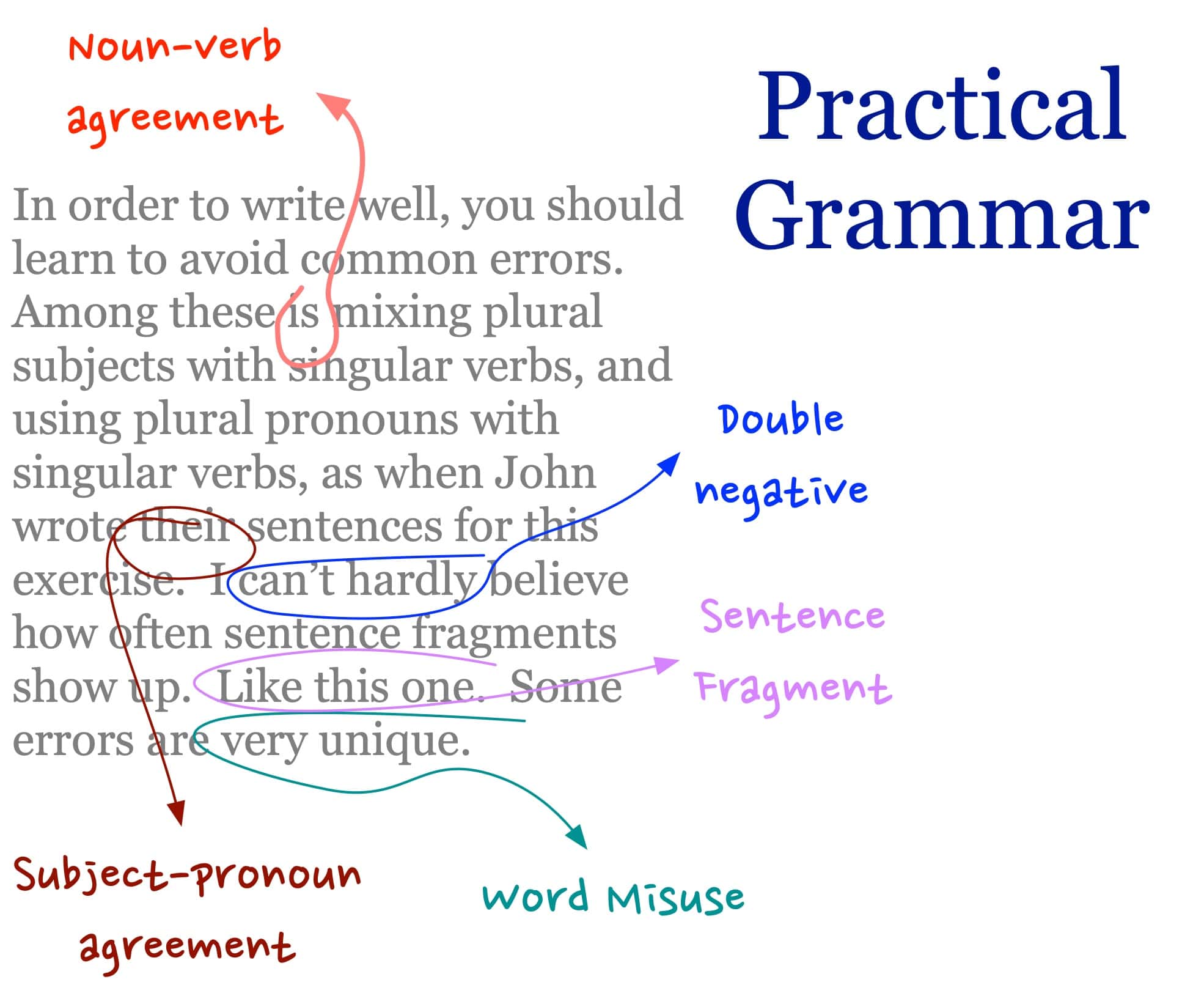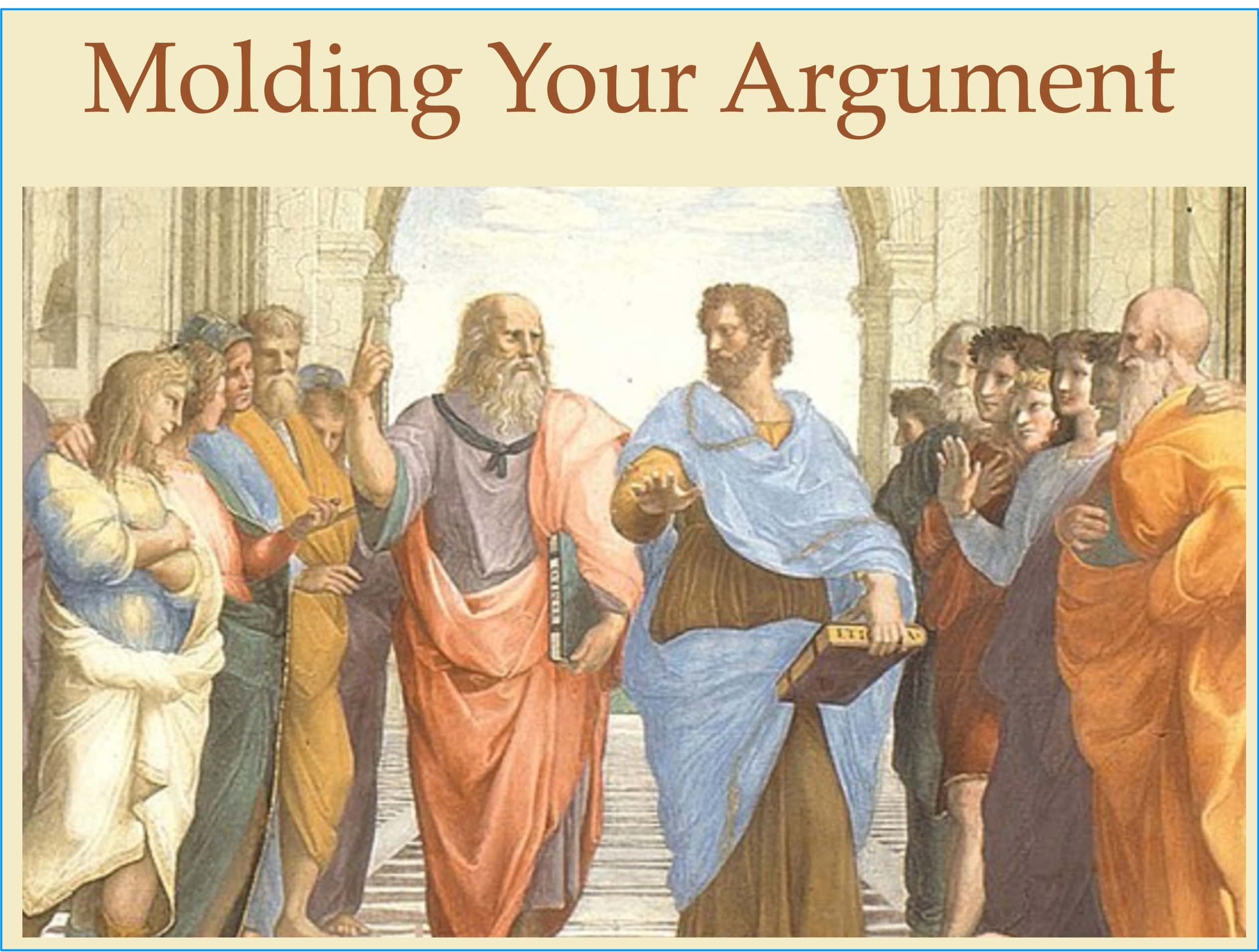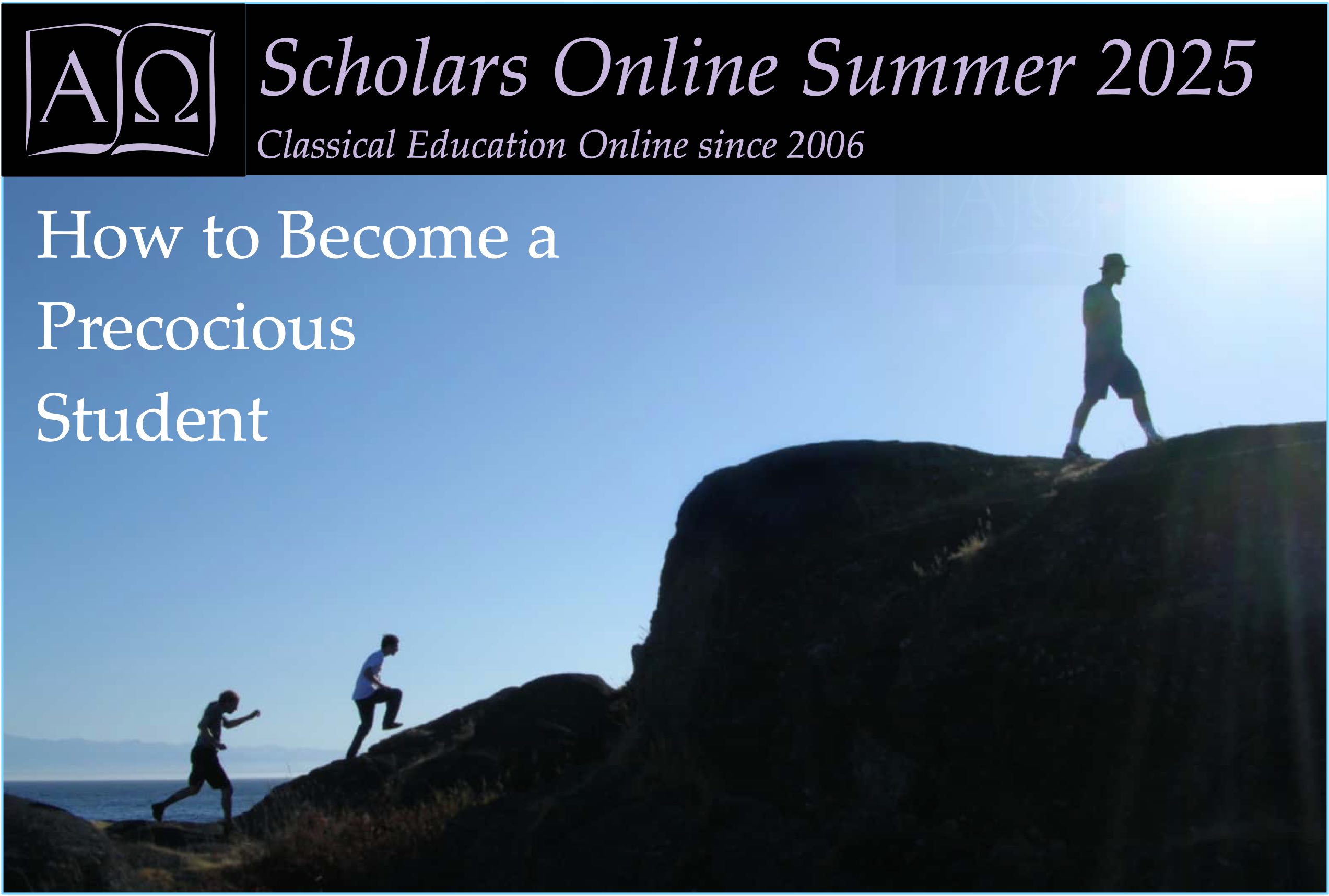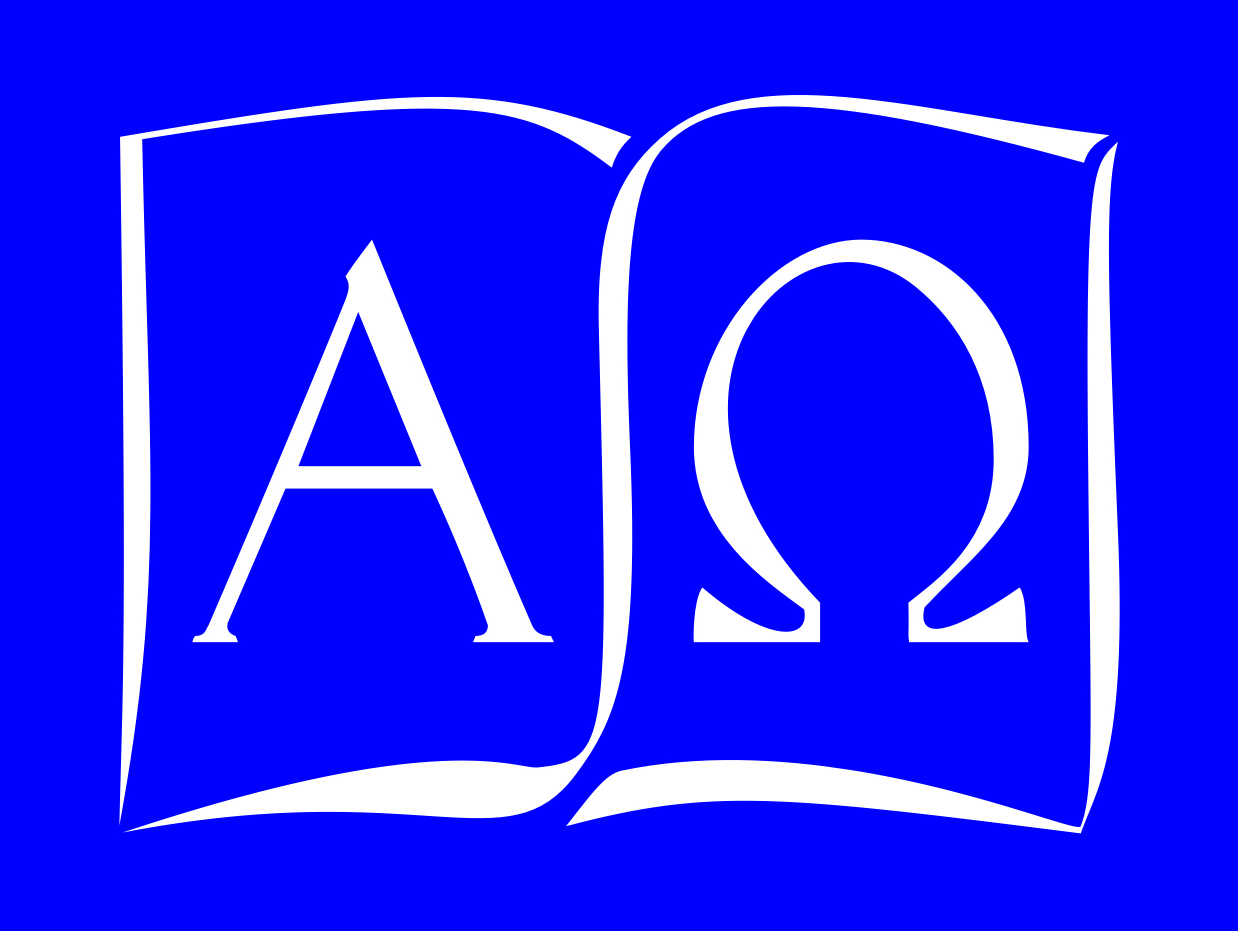Writing Courses Online
 |  |  |  |  |  |
Writing with Precision, Clarity, and Conviction
Available Courses
Practical Grammar • Summer 2025 • Grade 7
Molding Your Prose • Summer 2025 • Grade 7
How to Become a Precocious Student • Summer 2025 • Grade 6
Molding Your Argument • Summer 2025 • Grade 8
Writing for the College-bound • Academic Year 2025-2026 • Grade 8
To enroll in any of our courses, log into your Scholars Online Account Management Center using the login link at the bottom of any page and select the member you wish to enroll. If you do not have an account, you may create one using the Becoming a Member link under Enrollment in the Navigation bar at the top of this page.
If you are interested in a course not yet offered for this year, please use the EMAIL US link below to contact Scholars Online Administration with your course request.
Writing for the College-bound
We recognize that some students require a more structured writing program, with set deadlines and a clear focus on a particular goal. For these students, we will offer Writing for the College-bound, which focuses on composing the expository essay — the kind of formal prose required in most academic settings. This course meets in live chat sessions once a week to discuss the steps a student must go through to produce a more-than-merely-acceptable answer to an essay question. Students turn in a composition, receive feedback and critique each others' work, then rewrite their own compositions. With practice, they learn to recognize and correct their own mistakes, and formulate more organized and persuasive arguments to support their essay answers.
This course does assume that students have a certain level of proficiency already in writing correct prose. It does not focus on the mechanics of writing; students who still have issues with comma usage, noun-verb agreement, pronoun references, and other mechanical issues should take Practical Grammar during the summer to gain fundamental control of proper sentence composition before tackling Writing for the College-bound.
As with the Cursus course, Writing for the College-bound can be used in conjunction with writing assignments for other courses, providing both teachers agree to allow cross-class submissions.
Summer and Supplementary Writing Courses
In addition to our core writing course, we ofter a number of summer courses that cover practical grammar mistakes and how to fix them, writing for different audiences and using persuasive methods of arguing your case, and writing poetry.
 Scholars Online is fully accredited through the Middle States Accreditation Commissions on Elementary and Secondary Schools.
Scholars Online is fully accredited through the Middle States Accreditation Commissions on Elementary and Secondary Schools.
Hosted on Interserver


